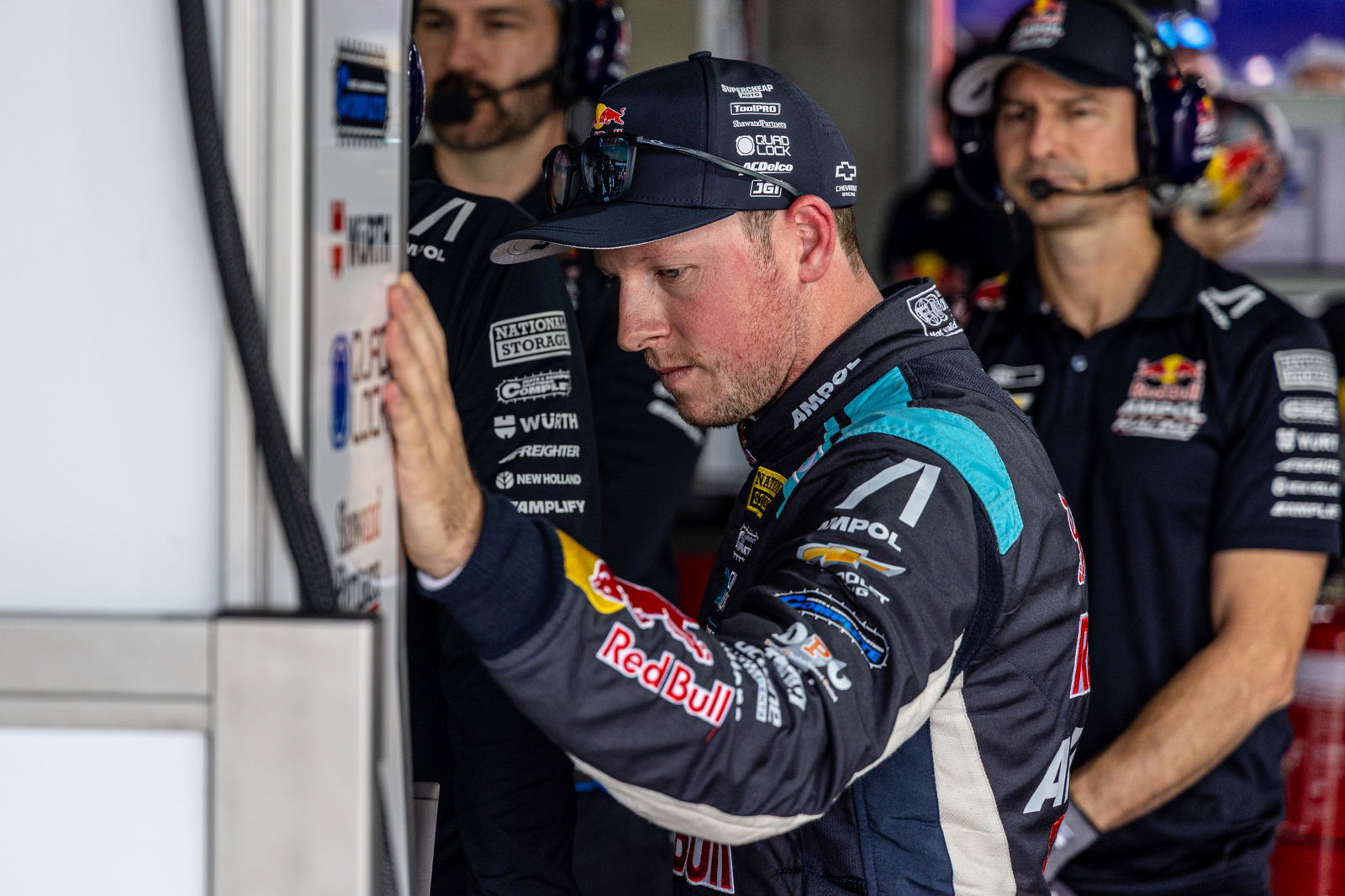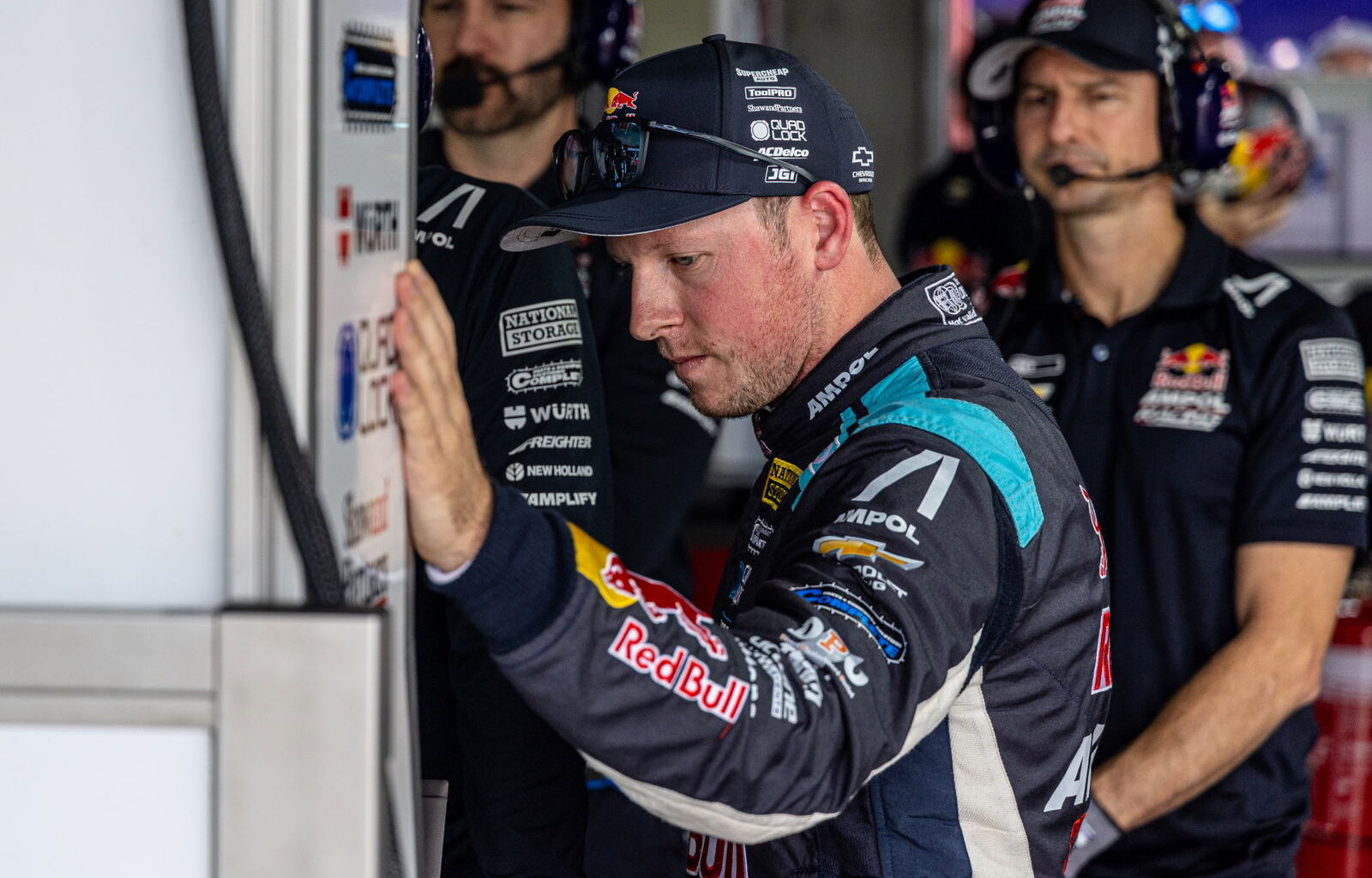
Will Brown. Image: Supplied
Motorsport Australia stewards have released a detailed explanation of Supercars champion Will Brown’s 15-second penalty following Sunday’s Ipswich Super440 finale.
Brown dropped from 16th to 23rd in the result – and from second to third in the championship standings – after being found guilty of breaching Rule D11.8.9.
That rule states: “During any Pit Stop, from the time the Car leaves the ground until the Car has returned to the ground, the brake lock mechanism must be engaged, so as the rear wheels do not rotate without the prior approval of the GMM.”
While it was not disputed that the rear wheels of Brown’s car were rotating before it returned to the ground during its second pit stop, the case focused on the three elements of the rule and the “obligations it imposes on the relevant parties”.
As detailed below, these 15 words – “so as the rear wheels do not rotate without the prior approval of the GMM [general manager of motorsport]” – ultimately determined the case.
Stewards applied the time penalty, rather than a monetary fine on the team, because “the action of the Driver was the primary cause for the wheels to rotate”.
The full stewards decision reasoning
The fact that the Car’s rear wheels were rotating while the Car before it returned to the ground during the relevant Pit Stop was not in dispute.
It was also not in dispute that the brake lock mechanism was engaged, and the rear brake pressure exceeded the prescribed minimum of 20 bar.
The question for the Stewards was as to how Rule D11.8.9 operates and what obligations it imposes on the relevant parties.
The issue is whether the obligation on the Competitor and/or Driver was only to engage the brake lock mechanism to a pressure exceeding 20 bar or whether the obligation was to engage the brake lock mechanism to the pressure of at least 20 bar AND in a way to prevent the wheels rotating before the Car returned to the ground.
In the Stewards’ view, the critical words in the Rule are “so as the rear wheels do not rotate without the prior approval of the GMM”.
Those words proscribe the way in which the lock mechanism must be engage, or in other words, what the Competitor/Driver must achieve by the engagement of the brake lock mechanism.
Therefore, the obligation on the Competitor/Driver is:
1) To engage the brake lock mechanism;
2) Engage it to a pressure of at least 20 bar; and
3) Engage it such a way that “the rear wheels do not rotate without the prior approval of the GMM”.
Here the Competitor/Driver complied with the first 2 elements but not the third and therefore the breach of the Rule is established.
The Stewards also heard from the DRD and the Competitor’s Authorised Representative in relation to the appropriate penalty to be imposed. The DRD submitted that a time penalty is the appropriate penalty to be imposed.
The Competitor’s Authorised Representative submitted that this was a Team breach for failing to provide the Driver with sufficient information and submitted that a fine would be the appropriate penalty.
The Stewards impose a 15 second Time Penalty because a sporting penalty is appropriate as the action of the Driver was the primary cause for the wheels to rotate and consider that a sporting penalty rather than a monetary penalty is the appropriate penalty in the circumstances.

